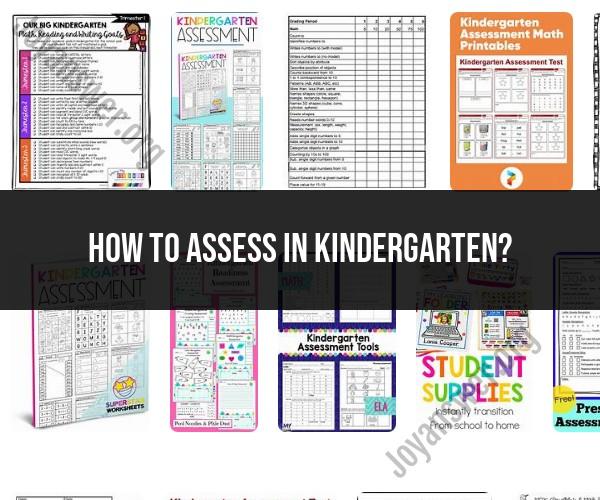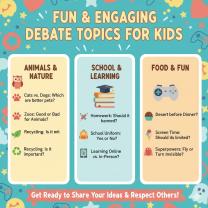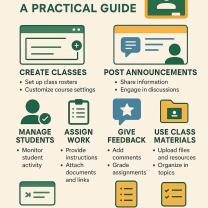How to assess in kindergarten?
Assessing kindergarten students is important to monitor their development and ensure they are meeting age-appropriate milestones. Kindergarten assessments help teachers, parents, and education professionals understand a child's progress and identify areas that may need extra support. Here are various methods for assessing kindergarten students:
Observation: Observation is a valuable tool for assessing young children. Teachers can observe students during class activities, play, and interactions with peers. This provides insights into social, emotional, and behavioral development.
Formative Assessments: These ongoing assessments are integrated into daily classroom activities. They help teachers gauge a child's progress and identify areas for improvement. Formative assessments can include quizzes, discussions, and interactive activities.
Summative Assessments: These are assessments conducted at the end of a specific period, such as the end of a unit or the school year. Summative assessments can include standardized tests, projects, and assignments.
Checklists: Teachers and parents can use checklists to monitor specific skills and behaviors. For kindergarten, checklists may cover areas like fine motor skills, social development, or pre-reading skills.
Portfolios: Portfolios are collections of a child's work over time, which may include drawings, writing samples, and projects. They provide a holistic view of a child's development.
Standardized Tests: While standardized tests are not typically the primary method for assessing kindergarteners, they can provide a broader view of a child's readiness for formal schooling. These tests assess areas like language development, math, and cognitive skills.
Teacher Conferences: Regular conferences with teachers provide opportunities for parents to discuss their child's progress, share observations, and ask questions.
Developmental Screening: Developmental screening tools can help identify children who may be at risk for developmental delays. These tools often include questions about a child's physical, cognitive, communication, and social-emotional development.
Parent and Teacher Questionnaires: Parents and teachers can complete questionnaires that assess a child's development. These may cover areas like social skills, emotional development, and behavior.
Play-Based Assessments: Since play is an essential part of kindergarten, play-based assessments can be used to evaluate a child's creativity, problem-solving skills, and social interactions.
Listening and Speaking Assessments: Assessments that focus on a child's ability to listen and speak can help evaluate language development and communication skills.
Math and Literacy Assessments: These assessments evaluate a child's early math and literacy skills, including letter recognition, counting, and basic reading readiness.
When assessing kindergarteners, it's crucial to consider their age and developmental stage. Assessments should be age-appropriate, engaging, and conducted in a supportive, non-stressful environment. Results should be used to guide instruction and provide additional support if needed. Collaboration between teachers and parents is also important to ensure a comprehensive understanding of a child's development and progress.
Assessing Kindergarten Students: Methods and Strategies
There are a variety of methods and strategies that can be used to assess kindergarten students. Some of the most common methods include:
- Observation: Observation is a great way to assess students in a natural setting. Teachers can observe students during class, during recess, and during other activities to get a sense of their skills and development.
- Portfolios: Portfolios are a collection of student work that can be used to assess progress over time. Portfolios can include samples of student writing, drawings, and other work.
- Standardized tests: Standardized tests are designed to measure student achievement in specific academic areas. There are a variety of standardized tests available for kindergarten students, including tests of reading, math, and science.
The Importance of Kindergarten Assessment
Kindergarten assessment is important for a number of reasons. First, it helps teachers to identify students who may need additional support. Second, it helps teachers to track student progress over time. Third, it helps teachers to inform their instruction.
By identifying students who may need additional support early on, teachers can provide them with the interventions they need to succeed. Kindergarten assessment can also help teachers to track student progress over time and identify areas where students may be struggling. This information can be used to inform instruction and ensure that all students are meeting their full potential.
Developmental Areas and Skills Evaluated in Kindergarten
Kindergarten assessments typically evaluate students in a variety of developmental areas and skills, including:
- Academic skills: Academic skills include reading, writing, and math. Kindergarten assessments typically measure students' basic skills in these areas.
- Social-emotional skills: Social-emotional skills include self-awareness, self-management, social awareness, relationship skills, and responsible decision-making. Kindergarten assessments typically measure students' development in these areas as well.
- Physical development: Physical development includes gross motor skills, fine motor skills, and perceptual-motor skills. Kindergarten assessments typically measure students' development in these areas as well.
Best Practices for Conducting Kindergarten Assessments
There are a number of best practices for conducting kindergarten assessments. These include:
- Use a variety of assessment methods: No single assessment method can provide a complete picture of a student's skills and development. It is important to use a variety of assessment methods to get a complete picture of each student.
- Involve multiple stakeholders: Kindergarten assessments should involve multiple stakeholders, such as teachers, parents, and administrators. This helps to ensure that assessments are fair and accurate.
- Use assessment data to inform instruction: Kindergarten assessment data should be used to inform instruction. Teachers can use this data to identify students who need additional support and to develop lesson plans that meet the needs of all students.
Using Assessment Data for Instruction and Support in Kindergarten
Kindergarten assessment data can be used to inform instruction and support in a number of ways. For example, teachers can use this data to:
- Identify students who need additional support: Kindergarten assessment data can be used to identify students who may need additional support in specific areas. Teachers can then provide these students with the interventions they need to succeed.
- Group students for instruction: Kindergarten assessment data can be used to group students for instruction. This helps to ensure that all students are receiving instruction at the appropriate level.
- Develop lesson plans: Kindergarten assessment data can be used to develop lesson plans that meet the needs of all students. For example, teachers can use this data to identify areas where students need more practice and to develop lesson plans that address those areas.
By using kindergarten assessment data effectively, teachers can help all students to succeed.












